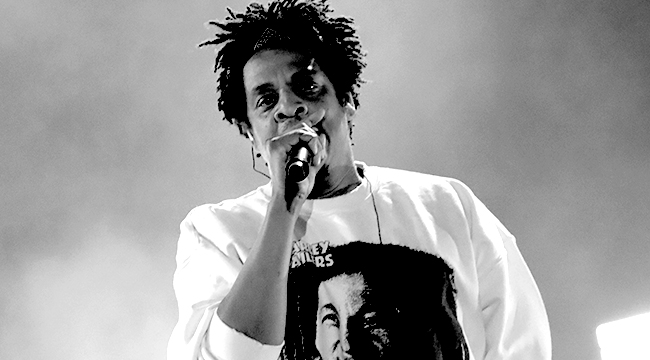
Jay-Z is no stranger to legal hassle, but the latest legal entanglement the rap mogul faces might just be the greatest reflection of a problem that continues to crop up in hip-hop — and just how big of a problem it is. It’s an issue that has plagued hip-hop since its ascent in the ‘90s, a conflict that is imprinted into the genre’s DNA, and that may not have a real fix anytime in the future. Sampling, the lifeblood of rap music since the late days of disco, has recently come into the spotlight again as one of the biggest thorns in its side, and this new Jay-Z case highlights all the reasons why that could continue to be the case for a very long time.
Over this past weekend, it was revealed that 81-year-old soul singer Ernie Hines, whose 1972 album Electrified became a collector’s item in the ‘90s, was suing Jay-Z, Roc-A-Fella Records, and Sony Music for over $2 million after discovering that his song “Help Me Put Out the Flame (In My Heart)” was sampled on Jay-Z’s 1998 album Vol. 2… Hard Knock Life on the song “Paper Chase.” Hines contends that the sample was used without his permission for over 20 years, which explains the significant sum he feels entitled to.
It’s reasonable to wonder how Hines could have gone for 20 years without ever hearing “Paper Chase” to notice its sample of “Help Me…,” which isn’t all that recognizable to begin with, but it’s also easy to explain. Although Hard Knock Life was one of Jay-Z’s best-selling albums, “Paper Chase” was never issued as a single or received significant airplay. 60 years old when Hard Knock Life was released, it seems unlikely that Hines was ever the sort of hip-hop head who’d play albums through from beginning to end — given his age, it’d be a shock if he listened to any hip-hop at all (his generation, after all, was the one that called rap “devil music” on its inception, if they weren’t outright denying its classification as music in the first place).
A better question to ponder is this: How could such a sample ever make it to print? Better yet, if Jay-Z and producer Timbaland had ever reached out to have the sample cleared in the first place, why wasn’t Hines contacted for clearance? Who even owns the rights to his catalog if he doesn’t? Hines was signed to now-defunct Stax Records, whose copyrights are even now in dispute between Rondor Music and Concord Music Group, which both claim to hold the rights to the iconic label’s catalog.
The situation further highlights an issue that was dragged to light by Def Jam rapper Logic just weeks ago after he vented about giving up 100 percent of the royalties on a beat to the estate of Lou Reed over a sample on A Tribe Called Quest song that Logic sampled. The issue with sampling is as knotted as the original deals that recording artists signed in the nascent days of the music business as we now know it. Old labels folded or were absorbed into newer or bigger ones, offshoot rights-holding businesses cropped up all over, technology advanced by leaps and bounds into new territory no one is sure is covered by old agreements that never imagined the existence of streaming services, .mp3 files, or licensing songs to trailers big-budget blockbuster films.
Jay’s current predicament also highlights why any sample use can be a risk, even decades after the fact. Despite its current reign at the top of the Billboard charts as the most popular genre of American music, hip-hop is still a relatively new musical style and doesn’t necessarily appeal to a majority of listeners — and that includes the composers of the old songs hip-hop repurposes to create its biggest hits, many of whom have turned up their noses at rap music for the past 40 years (why do you think the Grammys are just now starting to get their picks sort of right?). Now that hip-hop is more popular though, it’s becoming more and more unavoidable. Meanwhile, sites like WhoSampled and Genius make it easier than ever to pluck out individual samples in beats that use them, which makes it harder for artists to hide when rights-holders come calling.
The modern sample clearance system is just a side effect of the ad-hoc nature of much of the music business, but as it becomes more and more central to artists needs as well as businesses’ protection with the rise of rap as the dominant artform, things need to change. It’s clear that an overhaul of the system is needed to both streamline the process and aid communication between often-times like-minded artists who may be separated by geography and generation but willing to come to amicable agreements. When rappers like Jay-Z and Logic have to struggle to clear samples, it hurts everyone’s pockets down the line, from the original artists to rappers and their producers — and their labels when they get dragged into lawsuits and settlements.
Who’s to say that Hines wouldn’t have cleared the sample for Tim and Jay when they asked? But even if he had, does he even own the rights, or would they have had to hunt down someone at Rondor or Concord for the final say-so? Rather than getting wrapped up in legal knots hoping someone settles, it’s time for the industry to get proactive about unraveling some of these tangles before they become problems so the original artists and labels can get paid, and the newer producers can keep paying homage to the past that influenced them.






